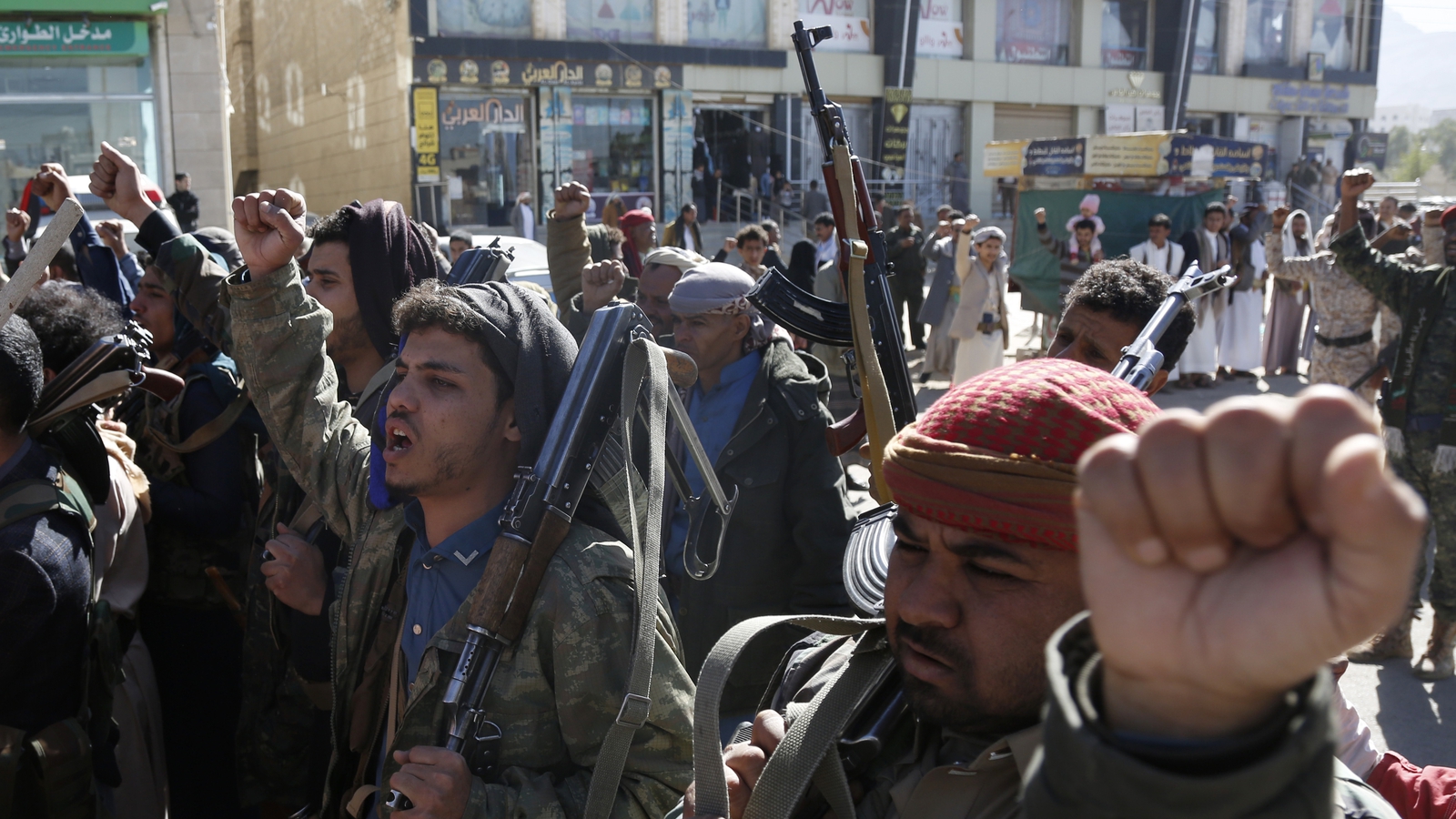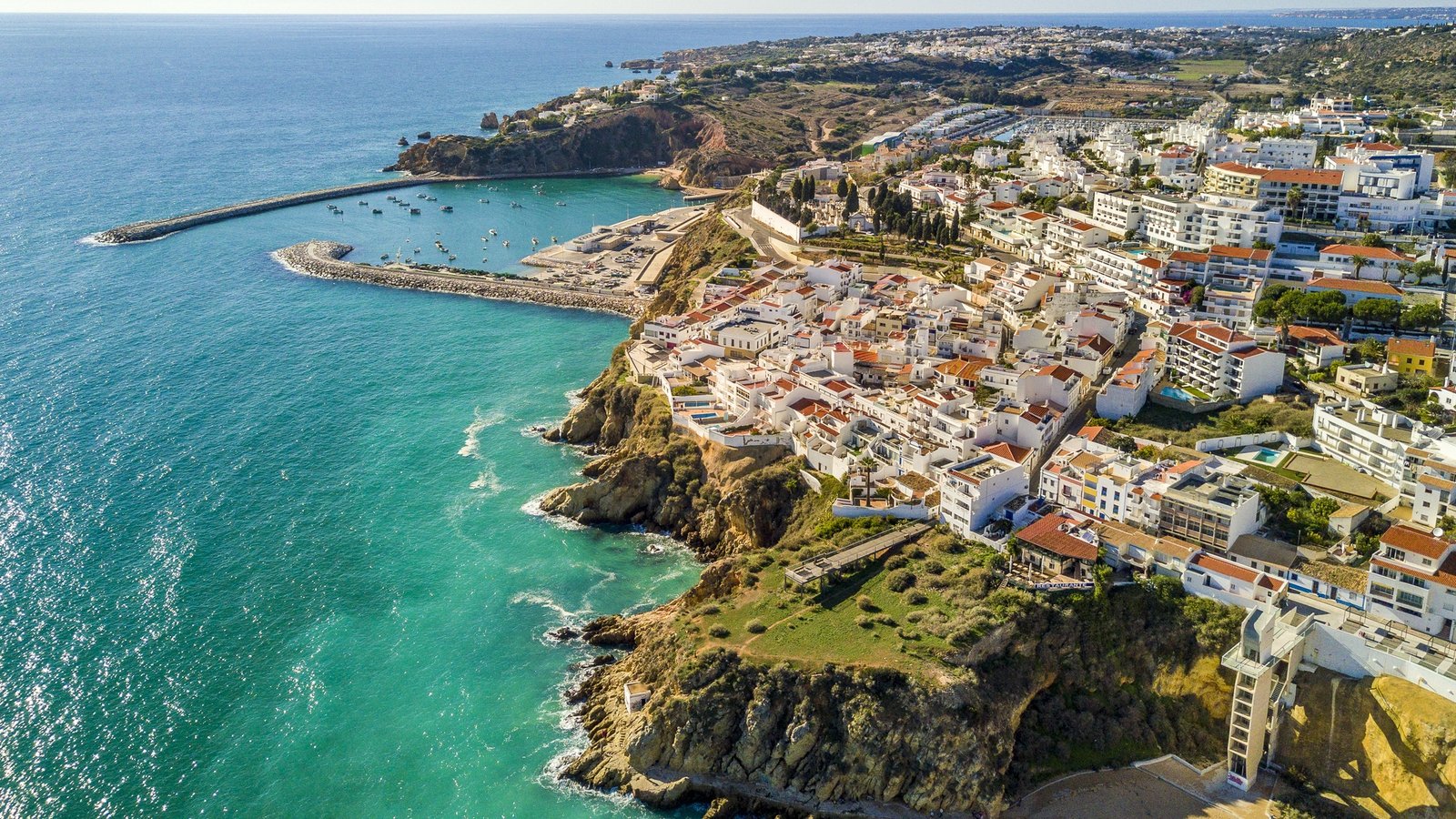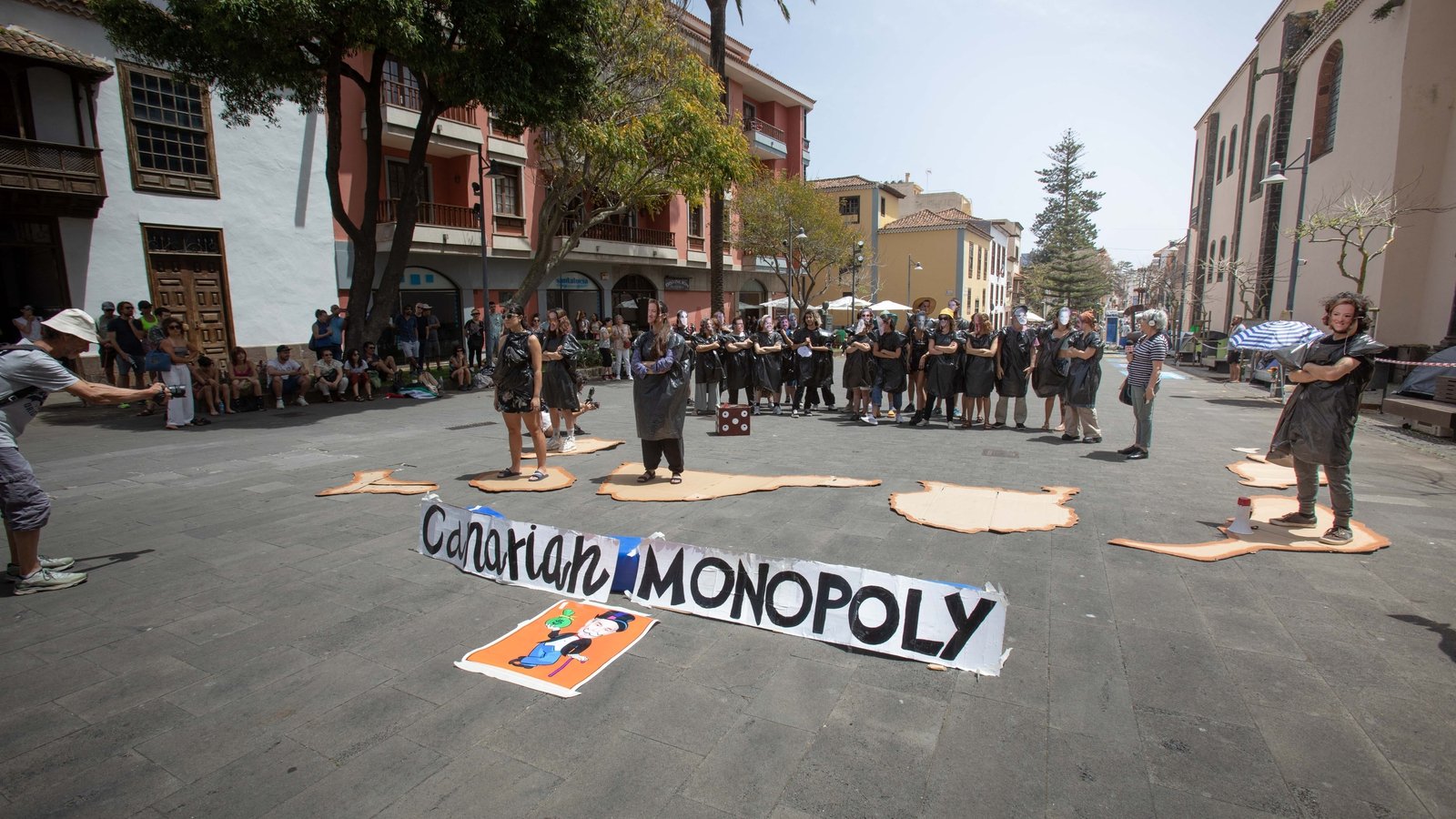Israeli party proposes vote to hold early elections
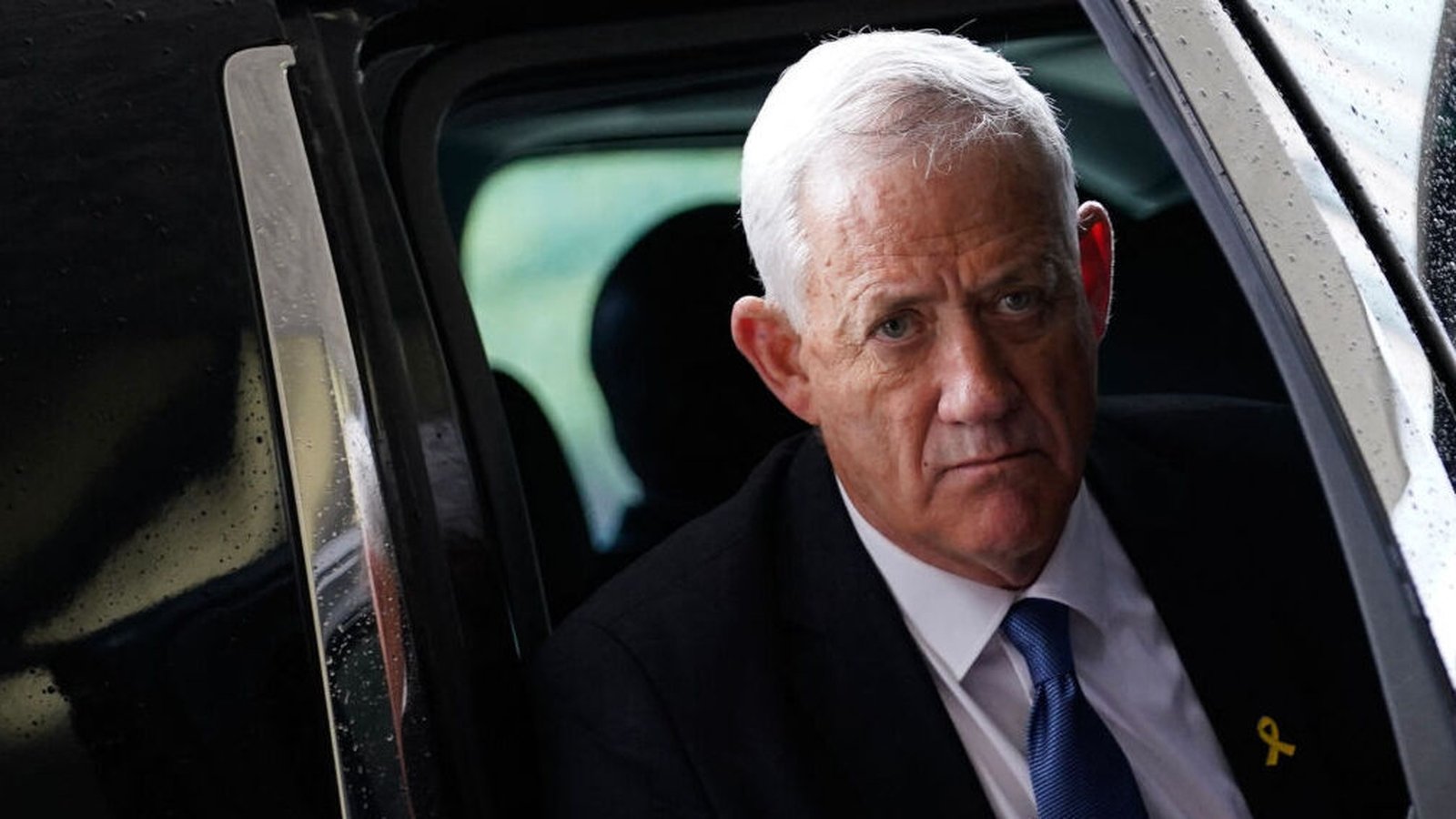
The centrist party of Israeli war cabinet minister Benny Gantz said it had submitted a bill to dissolve parliament and hold an early election.
“The head of the National Union Party, Pnina Tamano-Shata, has put forward a bill to dissolve the 25th Knesset. This follows the request of party leader Minister Benny Gantz to move forward in broad agreement to an election before October, a year since the massacre,” the party said in a statement.
Israeli Prime Minister Benjamin Netanyahu’s right-wing Likud party countered that “the dissolution of the unity government is a reward for (Hamas’ leader in Gaza Yahya) Sinwar, a capitulation to international pressure and a fatal blow to efforts to free our hostages”.
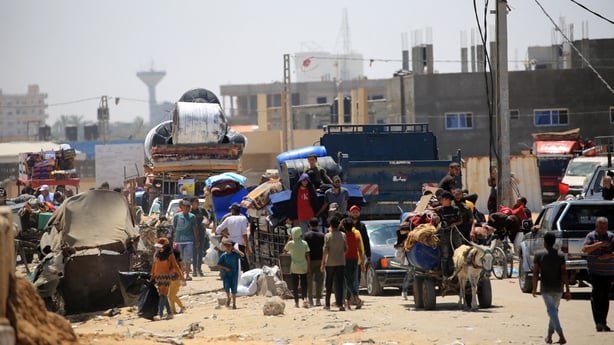
An election is not scheduled before the final quarter of 2026 and Likud has previously warned that holding one earlier would harm the army’s fight against Hamas in Gaza.
Mr Gantz threatened this month to resign from the war cabinet unless Mr Netanyahu approves a post-war plan for Gaza.
Mr Netanyahu has also come under criticism from defence minister Yoav Gallant for failing to rule out an Israeli occupation of Gaza after the war.
The Gaza war was sparked by Hamas’ 7 October attack on southern Israel, which resulted in the deaths of 1,189 people, mostly civilians, according to an AFP tally based on Israeli official figures.
Militants also took 252 hostages, 121 of whom remain in Gaza, including 37 the army says are dead.
Israel’s retaliatory offensive has killed at least 36,224 people in Gaza, mostly civilians, with 53 of those killed in the past 24 hours, according to the territory’s health ministry.
Israeli airstrike on Rafah kills 12 Palestinians
It comes as Israeli forces killed at least 12 Palestinians in a dawn airstrike on Rafah in southern Gaza and fighting raged in several other areas of the coastal enclave, Gaza medics said.
Israel pressed on with its offensive on Rafah a day after it said its forces had taken control of a buffer zone along the nearby border between Gaza and Egypt, giving it effective authority over Gaza’s entire land frontier.
Israel claimed the buffer zone’s capture had cut off a route used by Hamas to smuggle arms into Gaza during more than seven months of war, which has laid waste to much of the territory and raised fears of famine.
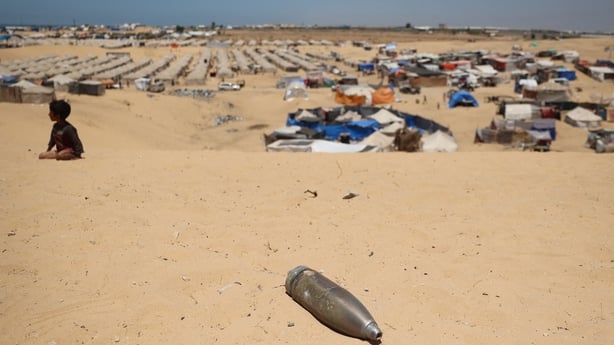
Gaza medical sources said the 12 Palestinians, whom it said were civilians, had been killed and an unspecified number of others wounded in an Israeli airstrike as they tried to recover the body of a civilian in the centre of Rafah.
Another Palestinian civilian was killed in an airstrike on Al-Shati refugee camp west of Gaza city in the north of the densely populated enclave, the medics said.
Israel reported clashes in southern, central and northern Gaza but did not immediately comment on the reported deaths in Rafah, where hundreds of thousands of displaced Palestinians took refuge earlier in the war.
Israel has kept up raids on Rafah despite an order by the International Court of Justice (ICJ), the top UN court, to halt its attacks.
Israeli forces claim they are trying to root out Hamas fighters and rescue hostages being held there. The ICJ also called for the release of hostages held in Gaza by Hamas.
Tunnels, arms and explosives
In an overnight call with US Secretary of Defence Lloyd Austin, Mr Gallant underlined the continuing importance of Israeli operations in the Rafah area “due to concrete information regarding hostages held there”.
“Minister Gallant detailed IDF activities in the Rafah area where 20 terror tunnels have been identified,” the Israeli defence ministry said in a statement.
The Israeli military also claimed in a statement that tunnels used by Hamas for smuggling and moving fighters underground had been discovered during the latest raids, as well as large amounts of arms and explosives.
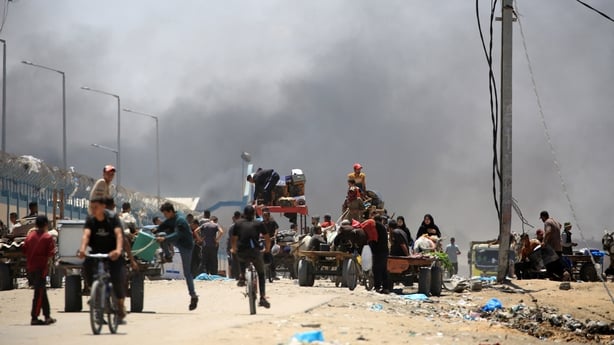
The Israeli statements did not say where the smuggling tunnels ran from.
An Israeli official claimed on 15 May there were 50 tunnels connecting Rafah to the Sinai in Egypt, and voiced concern that Hamas could use them to smuggle senior operatives or hostages into Egyptian territory.
Egypt denies the existence of any such tunnels.
The US reiterated its opposition to a major ground offensive in Rafah but said it did not believe such an operation was under way.
The US has, with Egypt and Qatar, been involved in efforts to mediate indirect talks between Israel and Hamas on arranging a ceasefire and the release of the remaining hostages.
Those talks have stalled with both sides blaming the other for the lack of progress.
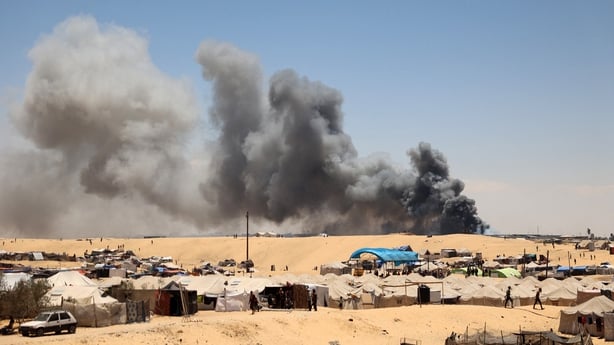
As Israel’s war drags on, malnutrition has become widespread in Gaza as aid deliveries have slowed to a trickle, and the United Nations has warned of incipient famine.
Philippe Lazzarini, head of the UN agency for Palestinian refugees (UNRWA), also called for an end to what he said were Israeli attacks on UNRWA staff and buildings in Gaza.
In article for the New York Times, he said Israeli officials were “delegitimising UNRWA by effectively characterising it as a terrorist organisation”, and he described a “dangerous precedent of routine targeting of UN staff and premises.”
His comments followed allegations by Israel in January that 12 of UNRWA’s 13,000 staff in Gaza took part in the 7 October attack on Israel. Israel did not respond to his remarks.


